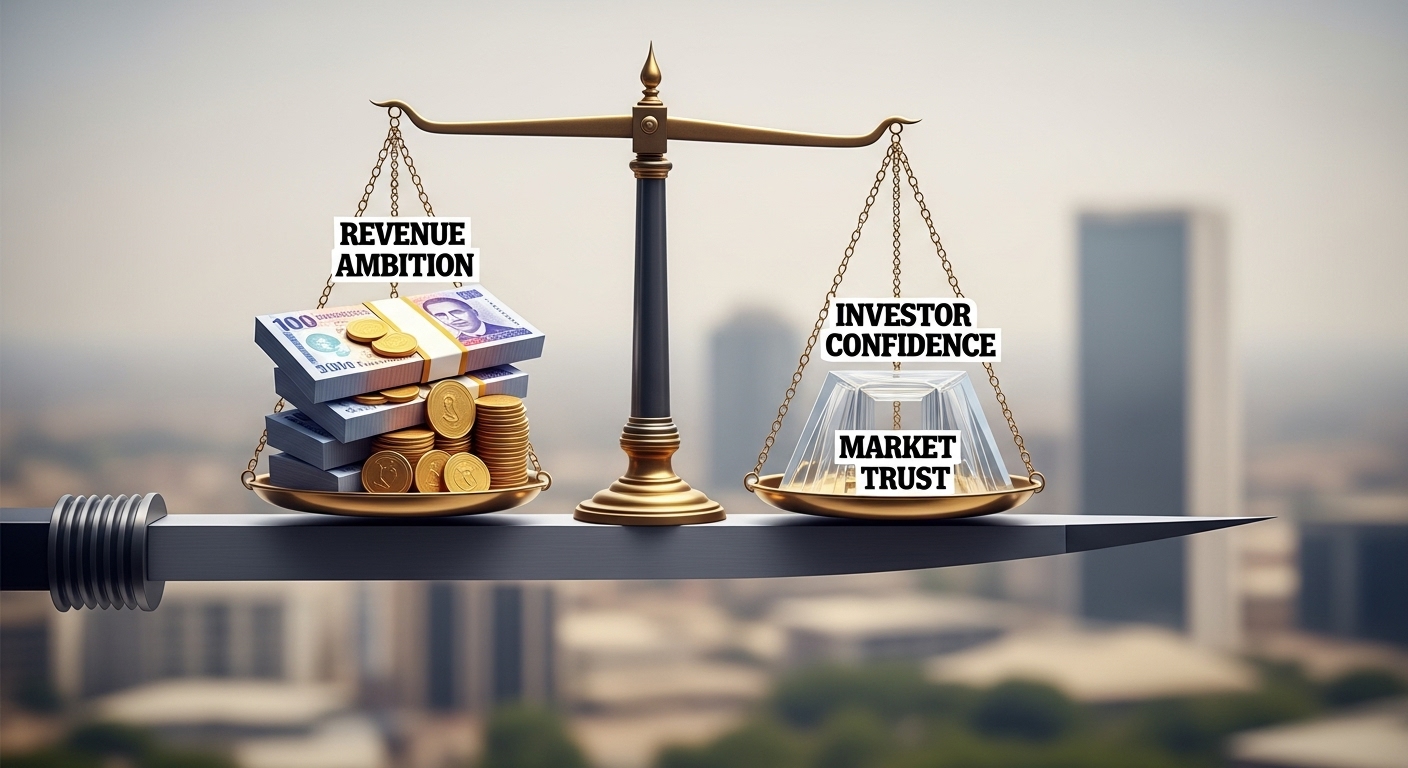Nigeria announced a new Capital Gains Tax (CGT) framework. This move intended to mark a bold shift. It aimed to broaden the country’s fragile tax base and boost public revenue. On paper, the policy made perfect sense: individuals or institutions who profit from capital should contribute a fair share to the national purse.
In practice, however, the policy has stirred unease across Nigeria’s financial markets. A quiet anxiety grows among asset managers and stockbrokers. Their issue is not taxation itself. Instead, they worry about how the authorities designed and enforced the rules. They question if the rules might do more harm than good.
Nigeria’s fiscal authorities set out to simplify the tax system, widen the base, and enhance compliance. Mr. Taiwo Oyedele and the Presidential Committee on Fiscal Policy and Tax Reforms lead this effort. Yet the current CGT design appears heavily tilted toward revenue collection. This potentially undermines investor confidence and market liquidity.
Across trading floors in Lagos and in the offices of foreign investment firms, one question keeps surfacing: what will be the true cost of collecting this tax?
Capital gains tax, in itself, is not controversial. Many markets around the world have one. The issue lies in the design. The new policy risks unintended consequences. These include slowed portfolio inflows and reduced trading activity. Unclear rules on cost bases, reinvestment treatment, and foreign exemptions cause this risk.
The Case for a Smarter Approach
Experts and market participants are not calling for the abolition of the CGT but for balance. They argue that a well-calibrated framework can strengthen both government finances and the investment climate. This can happen if authorities make key adjustments.
One major proposal is introducing a “safe harbour” for reinvestment. This would allow investors who sell assets to reinvest their proceeds within a 90 to 180-day window. They could invest in money market or fixed-income instruments without immediate taxation. This approach would preserve liquidity, encourage portfolio rebalancing, and keep capital circulating within the economy.
Another critical reform is resetting cost bases. This should reflect the market value of holdings as of the policy’s effective date. This adjustment would prevent retroactive taxation on gains accumulated before the new regime took effect. This is a standard fairness practice in more mature markets. Without this, the policy risks appearing punitive and arbitrary.
Nigeria’s Competitive Dilemma
Globally, capital gains tax rates in developing economies range between 5 percent and 15 percent. Nigeria’s proposed rate of 25 percent sits at the higher end of that spectrum, making the country less competitive in attracting global capital.
Even more worrying is Nigeria’s limited tax-treaty network. The country has only 16 double-taxation agreements in place. They have none with the United States, which is the largest source of global portfolio investment. Consequently, foreign investors face the risk of being taxed twice on the same income.
This lack of treaty coverage means that investors, even when willing to pay CGT, may be unable to reclaim tax credits in their home countries. For fund managers operating through pooled or tax-exempt vehicles, that creates a strong disincentive.
As one analyst succinctly put it, if you punish capital, it will eventually leave.
A Market Already Under Strain
Nigeria’s capital market is still recovering from years of policy inconsistency, foreign exchange instability, and eroded investor trust. The Central Bank of Nigeria, under Governor Olayemi Cardoso, has made progress. They are stabilizing the naira and restoring confidence. However, the new CGT framework threatens to undo those fragile gains. It reintroduces uncertainty at a sensitive moment.
A portfolio manager summed it up clearly: “Investors have begun to reassess Nigeria. This is not the time to discourage them.”
The Bigger Picture
Nigeria’s tax-to-GDP ratio stands at around 10 percent. This is one of the lowest globally, far below Africa’s average of 18 percent. The government’s desire to raise more revenue is understandable. However, successful tax reform is a marathon, not a sprint. Long-term success depends not only on collecting more taxes. Instead, it depends on building a system that inspires confidence and predictability.
The current CGT model may yield only modest revenue compared to its potential side effects such as reduced capital inflows, lower market depth, and declining valuations. The trade-off is unlikely to be worth it.
The Way Forward
A smarter, more sustainable CGT framework should adjust cost bases to the effective date of implementation. It should also introduce reinvestment relief within a clear time window. Furthermore, it should benchmark rates competitively against peer markets. Authorities should grant qualified foreign investors temporary exemptions until they secure more double-taxation treaties.
Authorities must roll out these reforms gradually. This should follow broad stakeholder consultation. They also need detailed administrative guidelines to ensure clarity and fairness.
Reform Requires Trust
There can be no separation between trust and taxation. When investors believe the system is fair, they comply willingly. When the rules appear arbitrary, they quietly withdraw.
Nigeria’s fiscal reformers must choose between chasing quick revenue through heavy taxation or building sustainable prosperity through trust and stability. The goal is not abolishing the Capital Gains Tax. Instead, they must design a tax that strengthens both government coffers and investor confidence.
Because, in the end, a tax policy that shrinks the market cannot grow the economy.
ALSO WATCH MARKETING EDGE ONTV







Comment
No comments found.